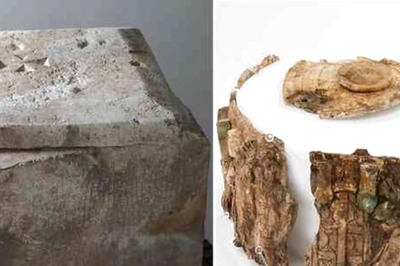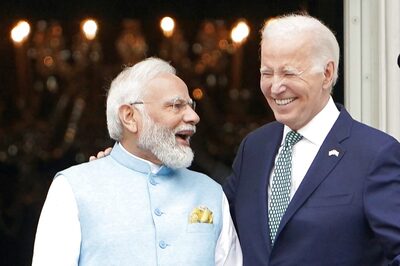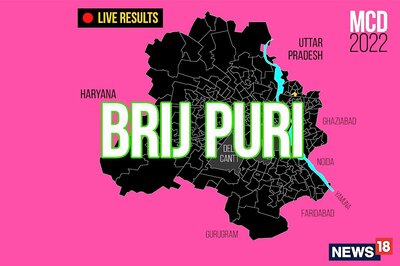
views
New Delhi: Retail inflation unexpectedly edged up to a 17-month high in January, while industrial production contracted at a faster-than-expected pace in December, underscoring imbalances lurking in Asia's third-largest economy.
Retail prices rose 5.69 per cent on year in January, their fastest pace since August 2014, government data showed on Friday. The rise compared with a 5.4 per cent increase predicted by analysts in a Reuters poll and a 5.61 percent annual gain in December.
Output at factories, utilities and mines shrank an annual 1.3 percent in December, another release showed, steeper than 0.1 percent fall forecast by economists surveyed by Reuters. The contraction, however, was smaller than a revised 3.4 percent fall in November.
Data shows no let-up in food inflation. Retail food prices were up 6.85 per cent on the year in January, compared to 6.40 percent in December.
With the government set to hike salaries and pensions of its employees later this year, demand-driven price pressures are likely to get a boost.
That could make it tougher for the central bank to tamp down retail inflation to 5 percent by March 2017, diminishing hopes for further rate cuts.
"We think that the window for further easing ... has shut," said Mark Williams, chief Asia economist at Capital Economics, after the data release.
The Reserve Bank of India (RBI) kept its policy rate on hold at 6.75 per cent earlier this month. Williams expects the central bank to keep rates unchanged throughout 2016.
Imbalances
Friday's data comes days after the economy posted growth of 7.3 percent in the quarter through December, faster than the 6.8 percent growth posted by China in the same quarter.
The data had shown consumption outpacing investments, signalling potential inflationary risks.
Industrial output data further underscored that risk as capital goods production, a proxy for investments, fell nearly 20 percent year-on-year in December. Consumer goods, a gauge for consumer spending, grew 2.8 percent.
It piles pressure on Finance Minister Arun Jaitley to unveil measures when he presents the federal budget on Feb. 29 to revive private investments, which have been dormant for the past four years.
His strategy to stimulate corporate spending through debt-fuelled higher public investment has yet to bear fruits.
Jaitley is under pressure to relax fiscal deficit targets in the budget and ramp up public spending to give the economy more momentum.
But RBI Governor Raghuram Rajan has cautioned against straying from fiscal consolidation, saying the move would jeopardise the country's economic stability at a time of global market turmoil.




















Comments
0 comment